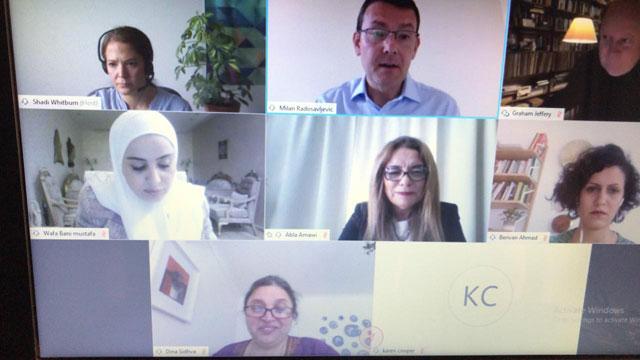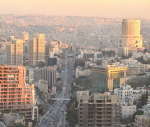You are here
HPC shares healthcare challenges, progress for refugees at Scotland meet
By JT - Jul 07,2019 - Last updated at Jul 07,2019
AMMAN — The Higher Population Council (HPC) participated in a workshop on "Health Care for Refugees in Humanitarian Crisis Situations" organised by the University of Edinburgh in Scotland from July 4-5.
The workshop, conducted by the University of Edinburgh in cooperation with Makerere University, the Andrade Ugandan Association, Aman Jordan Association and Yarmouk University, aimed to discuss the main findings of a study on the "quality of reproductive health services for urban adolescent refugees in Uganda and Jordan".
The workshop received support from several Ugandan and Jordanian entities including the HPC. Furthermore, the workshop discussed and addressed the broader context of healthcare for refugees in humanitarian crisis situations, according to a statement from the HPC.
In her address, HPC Secretary General Abla Amawi stressed that the main challenges facing the provision of reproductive healthcare for adolescent Syrian refugees in Jordan are the limited number of studies focused on them.
She also pointed out the low priority of reproductive health in families due to the difficult circumstances that they are experiencing, the absence of youth-friendly health clinics, the lack of data and information available on them and the failure to properly address and discuss these topics in school curricula.
Amawi highlighted the lack of family dialogue on these issues and the reliance of adolescents on their peers or social networks to obtain such information.
Other challenges, Amawi said, include the difficulty of detecting and addressing cases of gender-based violence due to social and cultural constraints.
Amawi stated that despite all the difficult economic conditions it is facing, Jordan is, nevertheless, spending every effort to provide the best services to Syrian refugees, including healthcare, according to the statement.
Refugees living in camps enjoy free healthcare services and 55 per cent of Syrians in Jordan enjoy health insurance, compared with 68 per cent of Jordanians, as indicated by the 2015 General Population and Housing Census.
Amawi emphasised that Jordan is implementing the Jordanian Response Plan for the Syrian Crisis (2018-2020) which focuses on enhancing services provided for Syrian refugees, including health services provided by government institutions and improving services provided to them in rural health centres.
In addition to the Jordanian National Plan for the Implementation of UN Security Council Resolution 1325 on Women, Peace and Security, the plan aims to provide gender-sensitive services (such as psychological, social, legal and medical services) and facilitate safe access to such services for vulnerable women and girls in host communities and refugee camps.
Amawi stressed the need to activate the role of the Ministry of Education to address reproductive health issues in school curricula, as well as the integration of young people's reproductive health needs into national strategies and development programmes implemented in host communities.
Amawi also voiced the need to support education, information and communication campaigns on the benefits of reproductive health services in both urban areas and the Zaatari refugee camp, as well as the need to promote community outreach.
Related Articles
AMMAN — The University of Edinburgh and the University of the West of Scotland on Wednesday announced a partnership with various Jordanian a
AMMAN — The Higher Population Council (HPC) on Tuesday held a seminar to host national stakeholders to discuss a review on the experiences o
AMMAN — The Higher Population Council (HPC), in cooperation with the Centre for Women in Protracted Crisis at the University of the West of

















